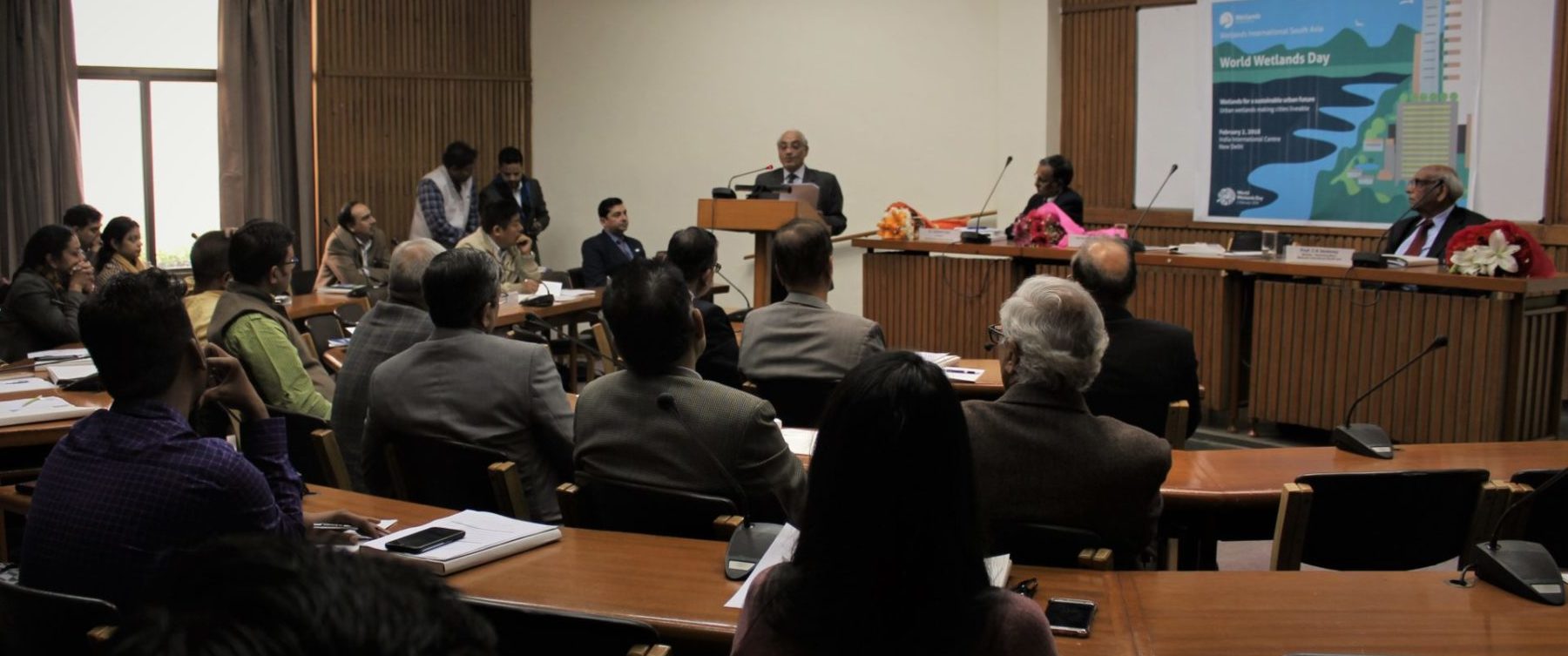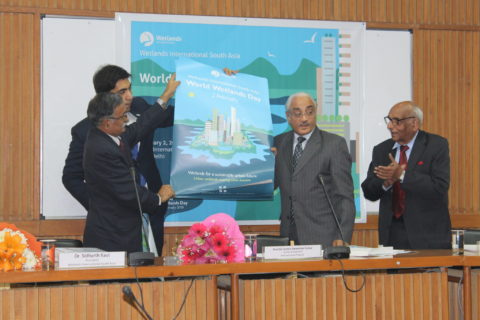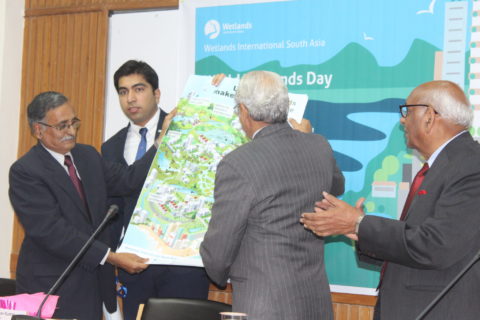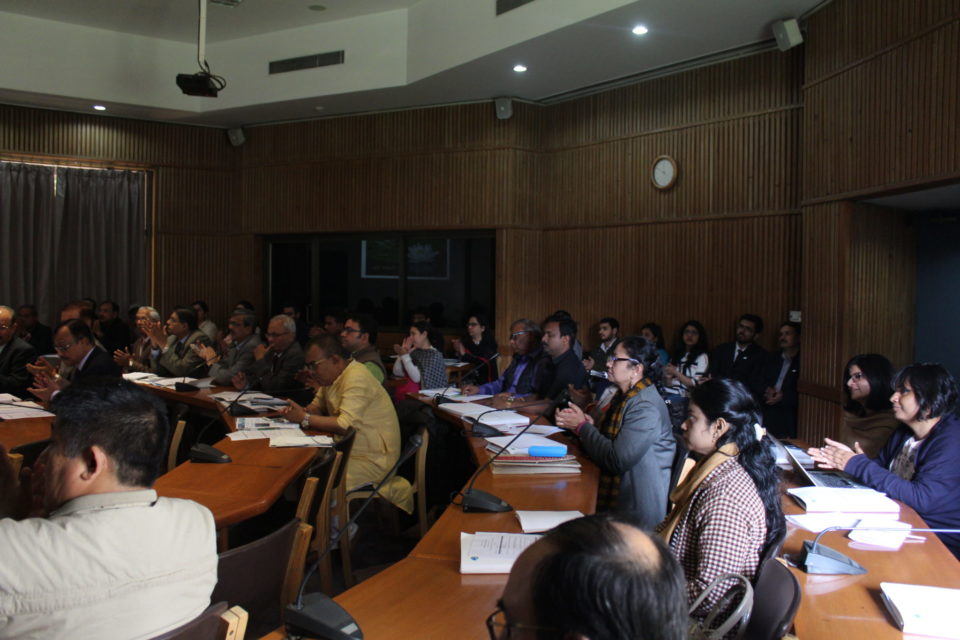
Call for mainstreaming wetlands in urban planning
-
Capacity development
-
Coastal resilience
-
Integrated management planning
-
Wetland values, status and trends
To mark World Wetlands Day, we held a seminar on “Wetlands for a sustainable urban future” at India International Centre, New Delhi.
The aim of the seminar was to discuss pathways and policy directions for securing a healthy future for Indian urban wetlands. Justice Swantanter Kumar, Former Chairperson, National Green Tribunal chaired the inaugural session and delivered the Presidential Address. The event was attended by participants from Central Government Ministries, the Netherlands Embassy, research and academic institutes, international conservation organizations, civil society and media
The event began with release two World Wetlands Day themed posters depicting the role wetlands play in urban spaces (in photo below (left to right) Dr. Sidharth Kaul, Mr. Dushyant Mohil, Justice Swatanter Kumar and Dr. C.K. Varshney).


Hon’ble Justice Swatanter Kumar in his presidential address referred to the existing codified legal framework for wetlands being largely oblivious of actual development threats acting on wetlands. Referring to several clauses in the existing Wetland Rules, Justice Kumar mentioned that while the overall intent was right, implementation remained a challenge. He also called on for demystifying wetlands so that layman and society at large could connect with these ecosystems as they do in real life.
“Wetland legislation needs to be effectively complemented by practicable conservation and integrated management actions.” – Hon’ble Justice Swatanter Kumar (Former Chairperson, National Green Tribunal)
Dr. Ritesh Kumar (Conservation Programme Manager, WISA) presented an overview on status and trends of urban wetlands in India highlighting the increasing trends in urbanization in the country, the sustainability challenge is to ensure conservation and integrated management of over 1.2 million ha wetlands that are located within these spaces. He highlighted the need for involving landscape ecologist and planners in the preparation of master plans for cities like Delhi.
“During 1970 to 2010, every 1 km2 increase in built up area corresponded with 25 ha loss of wetlands within urban spaces of major cities in India. ” – Dr. Ritesh Kumar (Conservation Programme Manager, WISA)
Mr. Manu Bhatnagar (Principal Director, INTACH) highlighted the disconnect between urbanization processes and natural hydrological regimes which sustain wetlands. The processes of landscape transformation due to urbanization was presented through several case studies. He referred to instances of cartographic assassination wherein wetlands areas were re-labeled as depression and other less significant connotations on a planning map.
Prof. J.K. Garg (Guru Gobind Singh Indraprastha University and Treasurer, Governing Body, WISA) gave an overview of the role remote sensing and GIS technologies could play in assessing status and extent of wetlands. He called upon innovative application of GIS and remote sensing tools to fill critical data gaps limiting policy-making and management decisions.
Summarizing the seminar, Dr. Varshney (Professor Emeritus, Jawaharlal Nehru University and Member, Governing Body, WISA) highlighted three emergent needs to secure urban wetlands: a) developing credible database on status and extent of urban wetlands, b) engaging with and enhancing capacities of urban planners to take into account wetland functions in spatial planning, and c) promote a system of wetland prioritization based on full range of ecosystem services and biodiversity values rather than size alone.
“Every wetland is important, no matter what its size. Wetlands are prized lands, not wastelands.” – Dr. Varshney (Professor Emeritus, Jawaharlal Nehru University and Member, Governing Body, WISA)

“Building capacity of urban planners to effectively integrate wetlands in city development plans is the need of the hour.” – Dr. Sidharth Kaul (President, WISA)
